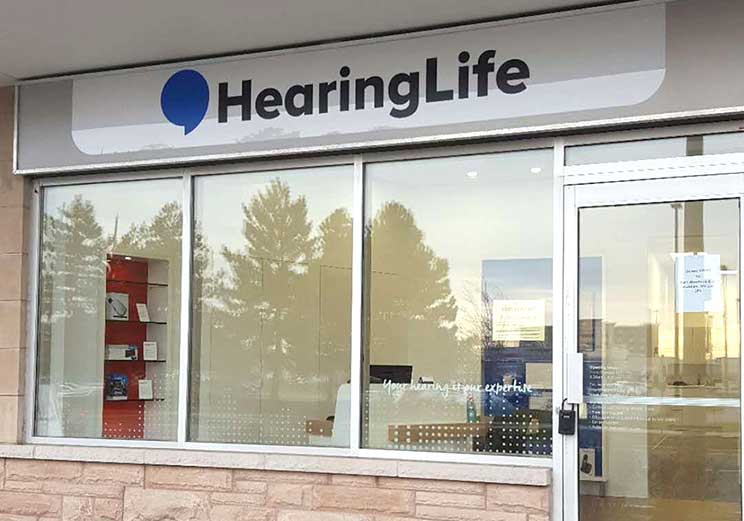The holidays can be a time of fun and togetherness, but for others, this time of the year can be a time filled with loneliness and isolation. Over the holidays (and all year), think about ways you can give back to others in your community. This can be as simple as saying hello, helping to shovel a sidewalk or driveway, or checking in on anyone you know that lives alone to make sure they are doing ok. Little things can go a long way to help others feel included and seen over the holidays.
Take Care of Yourself Over the Holidays
Mental health around the holidays can be challenging for many people. It’s important to acknowledge that while the holidays can be a joyful and festive time, they can also be stressful and emotionally taxing. Here are some common issues related to mental health during the holiday season and tips for managing them:
Increased Stress: Holiday preparations, shopping, decorating, and cooking can add extra stress to an already busy schedule. Managing expectations and setting realistic goals can help reduce stress.
Financial Pressure: The pressure to buy gifts and host gatherings can strain finances. Creating a budget and sticking to it can help alleviate financial stress. Or, instead of buying gifts why not make something or host a dinner or get together. Time together is one of the best gifts you can give your friends and family.
Loneliness and Isolation: For those who are alone during the holidays or have lost loved ones, this time can be particularly difficult. It’s essential to reach out to friends and family for support and consider volunteering or attending holiday events to combat loneliness.
Family Dynamics: Family gatherings can be challenging, especially when there are unresolved conflicts or strained relationships. Setting boundaries and having a plan for managing difficult interactions can be helpful.
Unrealistic Expectations: The media often portrays a picture-perfect holiday, which can create unrealistic expectations. Remember that it’s okay if your holiday doesn’t match the ideal; focus on creating meaningful moments.
Seasonal Affective Disorder (SAD): Some people experience seasonal depression during the winter months. Exposure to natural light, regular exercise, and talking to a mental health professional can be beneficial.
Overindulgence: The abundance of food and alcohol during the holidays can lead to overindulgence, which can negatively affect both physical and mental health. Moderation is key.
Seeking Help: If you’re struggling with your mental health during the holidays, don’t hesitate to seek help from a mental health professional.
Remember that it’s okay to acknowledge your feelings and seek support if you need it. The holidays can be a mix of emotions, and it’s important to prioritize your mental well-being. Additionally, reaching out to friends and family, being mindful of your own limits, and practicing gratitude can help you navigate the holiday season in a healthier way.
Volunteer with us!
Many of us make resolutions for changes we want to make in the New Year. If one of the things you wanted to do was volunteer, we want you! Comox Valley Senior Support is looking for volunteers for all our programs, as well as the Board of Directors. Would you like to visit with a lonely or isolated senior? Or assist someone with accessing services in the community? If so, please contact us to learn more about providing support in your community. We offer training monthly so there are minimal delays to getting started. Volunteers are provided with monthly support meetings and regular education sessions. Contact us today to get started!
November Special Offer
At Motion knowledgeable experts enjoy making life accessible for everyone by identifying the unique needs of our clients and selecting solutions that fit their lifestyles. Let us help you make a difference in your life every day with the right mobility and home accessibility solutions, including wheelchairs, stairlifts, walkers, power lift recliners, bathroom safety items, and more. “Because Motion isn’t a place, it’s a partnership.” Special Offer: $200 OFF All Stairlifts until November 30, 2023. Straight, curved, and outdoor options available to fit any stairway. Contact us today to claim the offer and for a no-obligation quote!
Pre-Plan for Peace of Mind
Pre-planning for your final wishes is a compassionate choice that relieves your family of the burdensome task during a time of grief. It provides financial security, shielding against rising costs and disputes. Furthermore, it offers emotional support, allowing loved ones to come together, grieve, and bond. Planning your farewell in advance ensures that your specific wishes and budget are met. It becomes a cherished gift to your loved ones, enabling you to share your life’s story one last time. Remember, if you want to live well and die well, you need to plan your funeral well!
Hearing Aid Purchase Guide
Digital hearing aids are made up of a powerful minicomputer. The minicomputer analyses the sound environment from data gathered by the microphones. The computer selects the sounds you need help with. The highest quality and best hearing aids only amplify the parts of sound you need help with. They also remove any excess sound and amplify the personalized result in your ear.
The right hearing aid for you depends on several factors, including the type and severity of your hearing loss, your lifestyle, and your manual dexterity. However, a hearing aid that one person likes might not work for someone else, even if both have almost identical audiograms.
And even within the same brand, there can be several versions of a given model. That kind of variation makes comparing hearing aid models and brands very challenging.
When it comes to getting the hearing aids that suit your hearing needs this is what you should do

1. Find a hearing centre with licensed hearing professionals
When searching for a hearing care center, prioritize finding a location where a professional can assess your hearing and provide individualized counselling based on your specific needs. The centre should test your hearing in a soundproof booth and should give you a copy of the hearing test results. The provider should verify that the hearing aids are working effectively for you (including in a noisy environment). He or she should also review the instructional brochure that accompanies the hearing aids.
Connect with a hearing professional now

2. Find a convenient clinic location
Find a provider who has a local hearing center near home or work and is also part of a global network. This will give you access to a large network of hearing care providers. Professional help is never too far away. Your hearing aid provider should have convenient business hours, offer walk-in repair service, and make it easy to schedule an appointment.

3. Choose a provider that offers personalized, ongoing customer care
Your hearing is as unique as your fingerprint. Unlike standardized solutions, specialized hearing care centers allow you to build a relationship with your hearing care provider, and you will have the choice of a large spectrum of hearing aid types and brands so that you can find the optimal solution for you. The provider should discuss the effect of hearing loss on your lifestyle and relationships, and how best to manage difficult listening situations. The conversation should touch on the level of challenges you experience in hearing over the phone. The provider should ask about your manual dexterity and vision status because these can affect your ability to handle hearing aids successfully. The dispenser should also discuss realistic expectations and ask about your lifestyle, which can affect your choice of style and recommended features.
Find hearing centres with modern hearing technology
To learn more about hearing aids you can book a consultation with one of HearingLife’s 220+ clinic. Book your free HearingLife consultation here or call 1-833-384-2245
Getting Seniors Online
About 71% of seniors are online every day. Of those who are online, their main reason is to stay connected with family and friends. Whether it’s joining forums or sharing photos and stories with loved ones, social media and email allow seniors with limited mobility the opportunity to interact with others. If you’re interested in getting online but don’t know where to start, community centres and local senior groups often have programs to teach seniors about the internet and how to participate in online communities. It is important as we age to continue to stay socially connected to friends and loved ones.
Screening for Oral Cancer
Regular screening for oral cancer is an important step in detecting the disease and starting treatment as soon as possible if there is evidence of cancer. During the oral exam, your dentist will check various parts of your mouth, as well as your face and neck, for any indications of potential oral cancer. You can also report any concerning symptoms to your dentist at any time, including bleeding, a sore throat that won’t go away, swelling, lumps or lesions, unexplained loose teeth, ear pain, difficulty swallowing or chewing, burning or numbness, or difficulty moving your tongue or jaw.
Alzheimer’s & Home Safety
If you are part of a family that includes a loved one living with Alzheimer’s disease, it’s important to remember that one of the keys to aging at home is doing so safely. Safety at home begins with adapting the environment to support the changing abilities of the person with Alzheimer’s. Tips to help safeguard the home include: Install safety latches/locks on the doors and fenced/gated exteriors; Limit access to knives and harmful chemicals; Install grab bars for safe movement; Keep furniture in the same spot to avoid confusion; Install alarms on the doors, and store car keys in a locked container.
Supporting our Seniors
As we head into winter the possibility of extreme weather must be considered. Snow and/or significant rainfall with high winds are common occurrences here in the eat coast of Vancouver Island. In the event of extreme weather please be sure to check on your senior neighbours to ensure that they are safe and warm.
Take Care of Your Mental Health
Taking care of your mental health is essential for overall well-being. Here are some ways to prioritize and maintain good mental health:
Stay Connected: Maintain strong relationships with friends and family. Social support is crucial for mental well-being, and talking to loved ones about your feelings can be therapeutic. Practice Self-Care: Prioritize self-care activities that make you feel good physically and emotionally. This might include exercise, a healthy diet, adequate sleep, and relaxation techniques like meditation or deep breathing. Set Realistic Goals: Set achievable goals for yourself, both short-term and long-term. Accomplishing these goals can boost your self-esteem and sense of purpose. Manage Stress: Find healthy ways to manage stress, such as practicing mindfulness, yoga, or engaging in hobbies you enjoy. Learning to cope with stress is essential for good mental health.
Limit Screen Time: Excessive screen time, especially on social media, can negatively impact mental health. Set boundaries for screen use and make time for face-to-face interactions. Stay Active: Regular physical activity has been shown to have a positive impact on mental health. Exercise releases endorphins, which can improve mood and reduce stress. Get Adequate Sleep: Aim for 7-9 hours of quality sleep each night. Poor sleep can exacerbate mental health issues. Practice Gratitude: Focus on the positive aspects of your life and practice gratitude. Keeping a gratitude journal can help shift your perspective towards positivity. Engage in Relaxation Techniques: Practice relaxation techniques such as deep breathing, progressive muscle relaxation, or visualization to manage anxiety and stress. Seek Professional Help: If you’re struggling with your mental health, don’t hesitate to seek help from a mental health professional such as a therapist, counselor, or psychiatrist. They can provide you with guidance, therapy, and, if necessary, medication.







